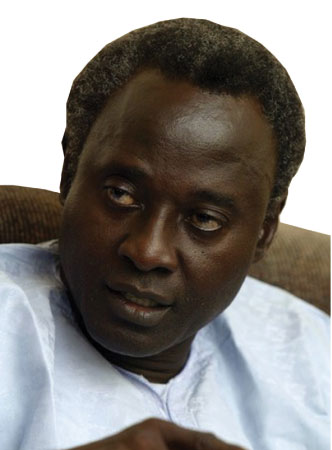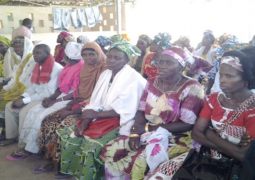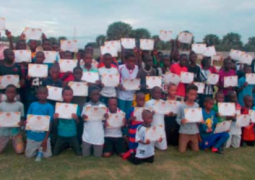
In a statement issued on behalf of its Central Committee by Halifa Sallah, Secretary General, PDOIS said the Gambia government should retract its press release announcing its pull-out from the Commonwealth so as to protect, preserve and promote the national interest and national integrity, and uphold respect for national instruments and the powers and jurisdictions of national institutions.
Below we reproduce the full text of the PDOIS statement:
PDOIS’ statement on the withdrawal of the Gambia from the Commonwealth
The Executive has over stepped its bounds and should reverse its decision
Executive power like all other powers under a Republican constitution has limits or bounds and there are guards and fences to prevent constituted authority from overstepping those bounds.
The state is known to have issued the following Press Release announcing its withdrawal from the Commonwealth with immediate effect:
“The General public is hereby informed that The Government of The Gambia has left the Commonwealth of Nations with immediate effect. Government has withdrawn its membership of the British Commonwealth and decided that The Gambia will never be a member of any neo-colonial institution and will never be a party to any institution that represents an extension of Colonialism. ”This Press Release does not speak the language of the Gambian Constitution, Gambian law or the Commonwealth principles that the Country has subscribed to since its membership in 1965 such as the Singapore Declaration of Commonwealth Principles, The Harare Commonwealth Declaration, The Latimer House Principles, The Trinidad and Tabago Affirmation of Commonwealth Values and Principles and the Charter of the Commonwealth. It does not state which values and principles of the Commonwealth are neo-colonial.
Hence the Press Release should be retracted to protect, preserve and promote National Interest and National Integrity and uphold respect for National Instruments and the powers and jurisdictions of National Institutions.
In short, the Commonwealth is a voluntary association of Independent and Sovereign states that has established inter-governmental organs from the heads of government level down to the ministers and the technocrats. It has a Parliamentary Association and other Technical, Professional and civil society bodies.
The Gambia became a member of the Commonwealth since 1965. The current Government promised to respect and uphold all treaties, international agreements and obligations entered into by the former government.
THE LAW
The question now arises: Could Gambia leave the Commonwealth through a Press Release issued over National Radio and Television?
The answer is in the negative. Even if the Executive had been mandated by statute to make such a proclamation, it would have had to publish its proclamation in the Gazette to become law. In actual fact, no statute gives the Executive such a mandate to revoke international agreements by executive announcement on national media.
Furthermore, Section 79 of the Constitution creates a basis for the separation of powers between the Executive and the National Assembly in negotiating, ratifying and concluding international agreements.
Section 79 gives certain powers to the Executive to conduct foreign relations. It also devolves powers to both the National Assembly and the people.
The relevant separation of powers is engendered by Section 79 of the Constitution. Section 79 Subsection (1)
(a)states: “The Presidentshall be responsible for the conduct of relations with other states and international organisations.”
Section 79 subsection (1)(c) limits the powers of the Presidentby making it mandatory fornegotiated terms and conditions of treaties and international agreements to be subjected to ratification before they could be concluded and put into force.
The Section reads: “The President shall be responsible for the negotiation and, subject to the ratification by the National Assembly, the conclusion of treaties and other international agreements.”
Hence, without the authorisation of the National Assembly the president cannot conclude any international treaty or agreement.
This is the second point.
Thirdly, the Constitution does take note of the principle of subsidiarity in international law. In some cases one could forgo National sovereignty in favour of a political or economic union that could enhance the sovereignty of two or more states. This is why Section 79 Subsection (2)(a) states:
“The Gambia shall not enter into any engagement with any other country which causes it to lose its sovereignty without the matter first being put to a referendum and passed by such majority as may be prescribed by the Act of the National Assembly”
OUR DOUBTS
We are conscious of the fact that the Commonwealth operates on the basis of the consensus principle. We are wondering why the Gambia Government has not given any indication that it was acting in concert with other governments in Africa to take multilateral action to change the direction of the Commonwealth or defend their sovereignty through a collective initiative.
The Press Release from the Office of the President has not alluded to any common grievance or concerted action taken by other African members of the Commonwealth to find a remedy. Why is the Gambia Government alone?
Secondly, the National Assembly of the Gambia is a member of the Commonwealth Parliamentary Association and has the authority to ratify all international treaties and agreements. Why was it not consulted?
Thirdly, in dealing with the issue of loss of sovereignty, a referendum is the constitutional instrument to provide a remedy. Why did the Executive choose to ignore such a democratic option?
OUR OPINION
Our opinion is that the action of the Executive is unwise and unconstitutional.
RECOMMENDATION
We call on the Executive
a) to retract the announcement and maintain the status quo and consult with other African members of the Commonwealth to discuss its grievances aimed at building a consensus. One could not speak for African leaders if they are not consulted.
b) If the government prefers to act unilaterally, to prepare a motion for submission to the National Assembly, with an explanatory memorandum setting out in detail the defects it sought to remedy without success regarding Commonwealth instruments, institutions, principles, values and policies and spelling out the necessity for withdrawal and propose the holding of a referendum on the issue of withdrawal.
REMEDIAL ACTIONS
Failure to respond positively to our statement would lead us to take the matter up with the people as we had done with the impasse on the political dialogue with the EU to help them to form a mature opinion and encourage the Government to rethink a decision that is inimical to National interest and integrity.
Failure to retract after a national debate will compel PDOIS to put the issue of restoring membership of the Commonwealth on our electoral platform in the 2016 Presidential elections.
Gambians should bear in mind that while they may not be able to stop President Jammeh from Governing the country the best way he knows how while he has the mandate, he could be stopped from governing the country at the end of his mandate by electing another leader if they are not satisfied with the decisions taken on their behalf. We do not have pollsters to check his midterm popularity ratings but the election results would be a good indication of how voters regard his decisions.
In our view many African leaders are failing by transforming themselves into protestors rather than architects of a new international order of justice, liberty, dignity, solidarity, tranquility and prosperity. African leaders and Africa could only matter if we take part as equals in defining universal principles, norms and values of governance, show greater commitment in upholding them and spare no effort in naming and shaming those who violate them without fear or favour, affection or ill will.
African leaders who need to speak for Africa are those who have shown how our right to self determination and Independence has been converted into instruments, institutions, policies, programmes and normative practices aimed at the establishment of genuine democratic Republics inhabited by a sovereign people living in liberty, dignity and prosperity. No African leader could defend Africa’s honour by words. Honour is a byproduct of deeds and not words.
We need to define the values on governance that we wish to put before the world for emulation and not just lament that others are imposing their values on Africans.
PDOIS is very clear on its values. It wants Africa to be the first monarch free continent on the face of the earth that would embrace the values of a Republic. It calls for the creation of Republics in Africa or a Union of African Republics that would guarantee to each one equality in sovereignty and in the enjoyment of civil, political, economic, social, cultural and ecological rights. We envisage the building of an Africa of free, dignified and prosperous citizens in whom sovereignty resides and on the basis of whose political and social enlightenment and maturity, a sovereign community rooted in social justice that transcends ethno-linguistic, gender, colour, religious and partisan or sectarian barriers could be built, to ensure that all will enjoy mutual respect and tolerance, foster unity and enjoy peace and happiness in diversity.
PDOIS does not want these values to be mere words on paper. We are ready, if put in position of leadership, to immediately enter into a cooperation agreement with our neighbour, Senegal, to establish a joint commission of jurists to review constitutional and legal instruments regarding governance with a view to harmonising and standardizing them to promote African integration on a democratic foundation that would serve as a pillar to uphold the fundamental rights of our people and thus heal their battered humanity.
This template of a Republican Constitution that eliminates the trends of an executive monarchythat stays in office for life and hands over power to one’s children, by introducing a two four- year term limit to the presidency, could be presented to Africa and the Commonwealth for consideration as our input.
This is how an African country or leader could earn honour and respect.
PDOIS would like to assure the Gambian people that it is working out in the greatest details what needs to be done to create a third Republic after the 2016 Presidential elections through another referendum that would guarantee liberty, dignity and prosperity to all.
History is calling for Africa to be engaged with the world to reshape world public opinion about the continent. There is too much pessimism, too many conflicts, too many deaths and destruction in Egypt, Somalia, DRC, the Central Africa Republic and the list goes on, andtoo many lost decades.
Africa’s image needs to be healed. Let us move from protests to solutions.
This is the demand of the twenty first century. We must address this demand or perish and the children would pay the price.
This is the dictate of reason and destiny and it is incontrovertible.
Halifa Sallah
For the Central Committee of
PDOIS
Read Other Articles In Article (Archive)
Selling the rams the right way
Oct 27, 2011, 1:36 PM




